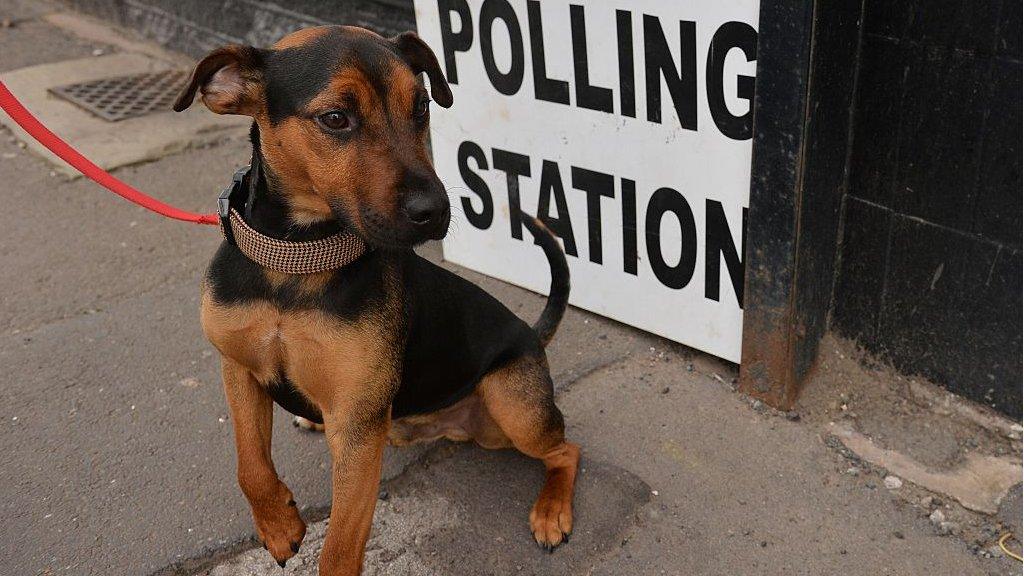Local elections 2019: The issues that matter to South East voters
- Published
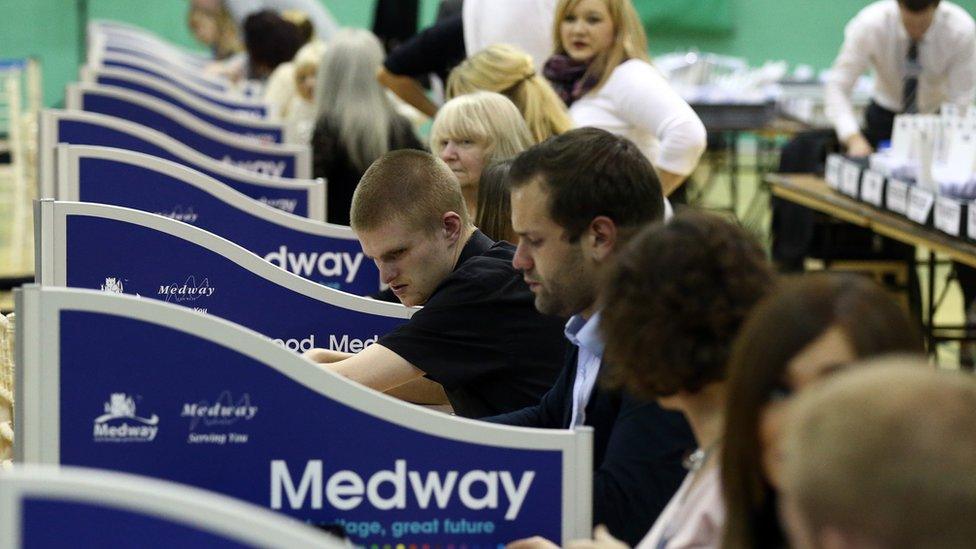
Voting will take place across south-east England on Thursday
Voters around England will be heading to polling stations this week. When it comes to local elections, residents in the South East say it is issues close to home and family that matter. We asked people from gritty Chatham and a wealthy Surrey village to explain why.
On Thursday, a polling station will be set up at the White Road Community Centre in Chatham and Bernadette Harris, who works there, will be among those running election day polling.
The mother-of-two is still deciding whether to vote and admits no-one pays much attention to local elections "especially around here".
But top of the issues voters do care about is knife crime, Mrs Harris said.
"We have got a lot of knife crime here," the 29-year-old said. "And we are concerned about that."
'Forgotten place'
The jailing of five teenagers over the stabbing of Kyle Yule in Gillingham put the focus on Medway's "youth gangs" last year.
"If they were going to put more money into youth services and police, people would vote," Mrs Harris said.
"It just makes you feel you live in a forgotten place."
Local elections: What are they all about?
The White Road Community Centre used to offer a youth service that closed two or three years ago and Mrs Harris says children are not being engaged.
"They are out on their bikes, but not being taught to ride them safely and doing wheelies in the road.
"They have got parks, places to play, but they are causing trouble."
Mrs Harris said she had seen no election literature and she would have to do her research before she voted this week.
But she added: "We have got young families and we are so busy, and we are trying to keep our kids safe. We don't have that time."
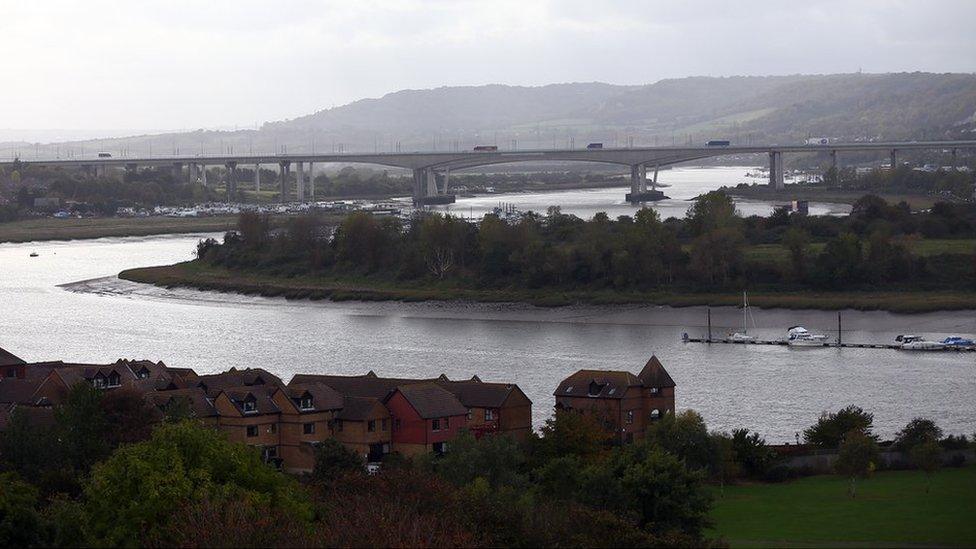
Knife crime has become an issue in the Medway towns
In Hempstead - also in Medway where all council seats are up for election, external - the residents association is fighting two planned developments, one of which which could see 800 homes being built nearby.
Chairman Brian Warner said residents were writing letters, leafleting and holding meetings amid concerns over traffic and pollution caused by people driving through Hempstead to reach the M2.
"We know people have to live somewhere," he said. "But it's the sheer amount of cars."
The residents association is non-political, but Mr Warner said planning would be uppermost in people's minds when they were voting.
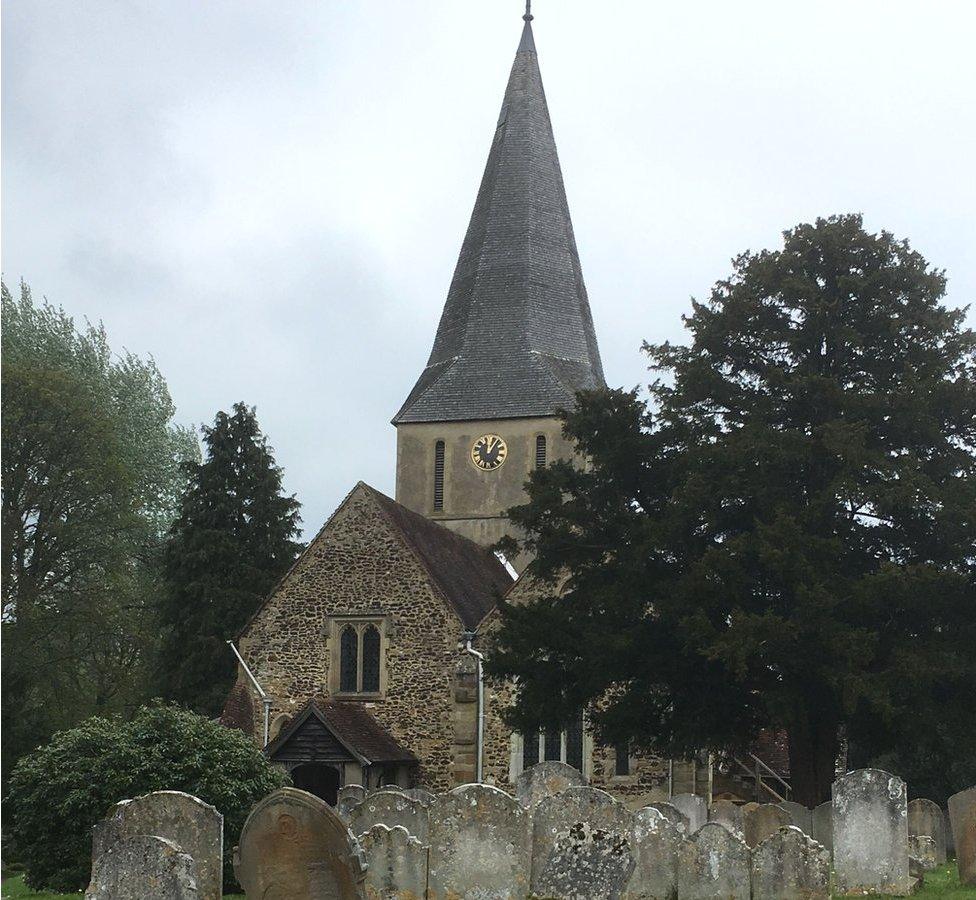
Shere's church has become a popular filming location

In the idyllic Surrey village of Shere - famous for its role in several romcom films including The Holiday and nestled in the Surrey Hills Area of Outstanding Natural Beauty - planning is also top of the list.
Ken Mead, a property consultant who has lived there for 22 years, believes the priority is to keep things as they are.
Villagers are so averse to change they almost had stand-up fights over one planning application when residents preferred a derelict bungalow to the new-build house that was eventually built, Mr Mead remembers.
"Any change brings a British disease," he said. "But it's more so in a village. We don't like it."
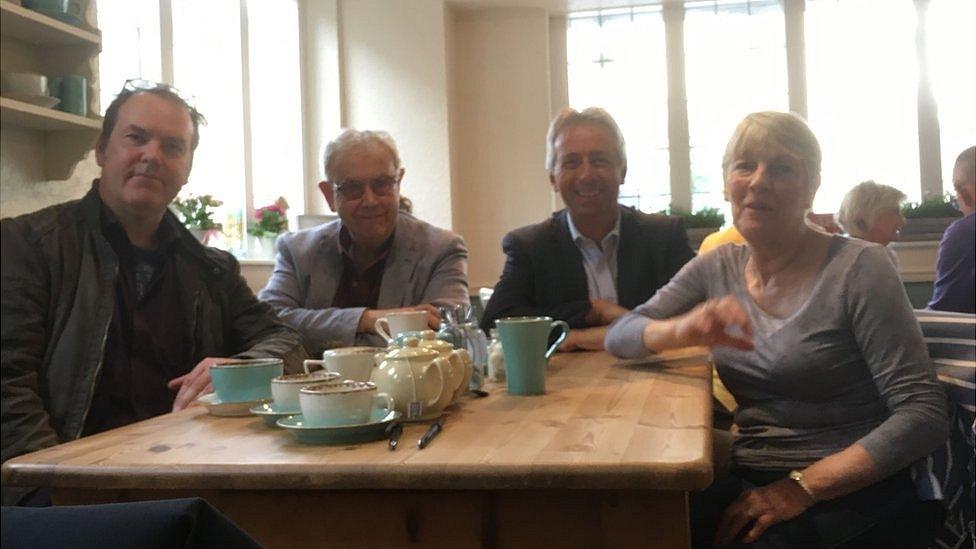
Tim Austin (second from left) and Ken Mead (third from left) live in the idyllic village of Shere
As one of the wealthier parts of the South East, Shere sees families with privately-educated children move there after having successful careers and selling up in London.
"We are very conscious we live in a bubble and we are divorced from problems like urban poverty," said Tim Austin, a retired journalist and now Shere magazine editor.
"The poverty of people in villages is nothing like the social deprivation that's so rife."
Four candidates are standing to represent Shere, external on Guildford Borough Council - two Conservatives, one Liberal Democrat and one Green.
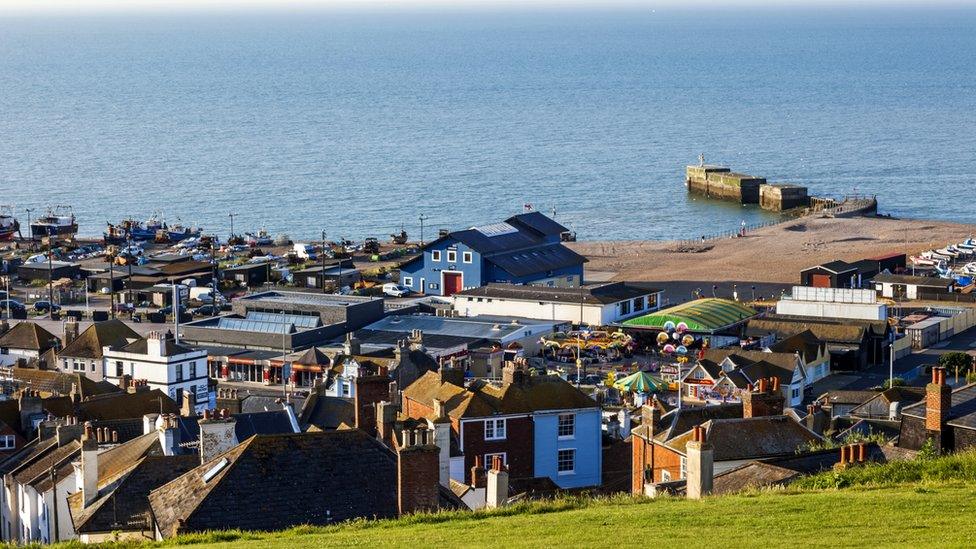
Pensioner poverty is top of the list in Hastings
In Hastings, there are no borough elections this year but some still hope to have their say in European elections and many would welcome a general election.
Dick Edwards, chairman of the Hastings Old Town Residents Association, said the biggest issues facing the Sussex seaside town were adult social care and pensioner poverty, following the closure of the Isabel Blackman centre which had offered day services for elderly and disabled residents.
But he said: "Shops closing is not on the same scale as in other parts of the country.
"What we have are people who are isolated. They are on their own."
He added: "Many people would love a general election if they thought things would change, and that's the frustration. There is very solid disenchantment."
- Published1 May 2019
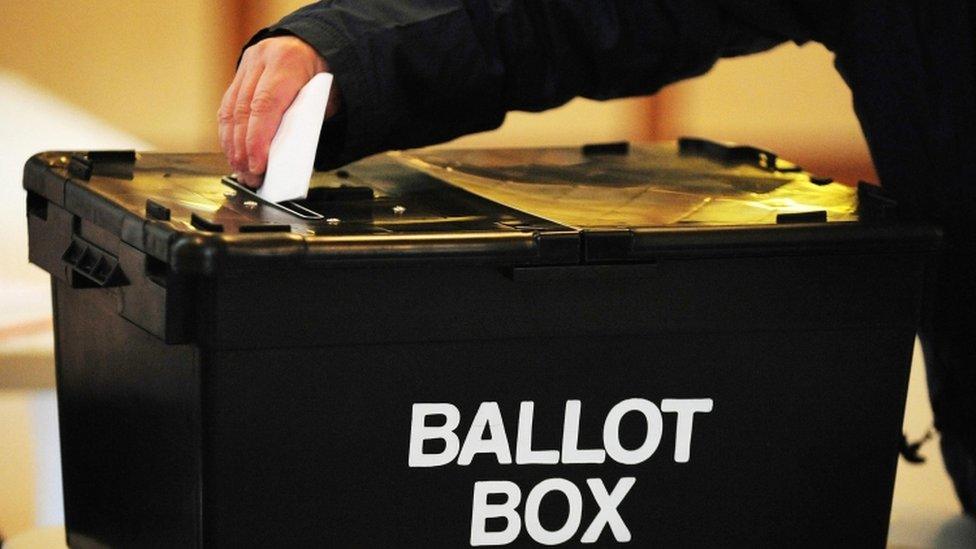
- Published26 April 2019
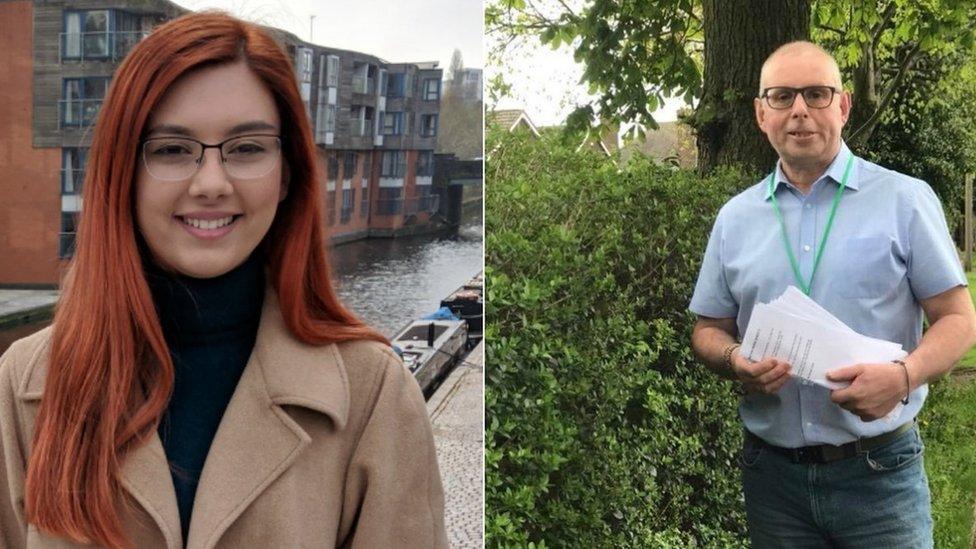
- Published17 April 2019
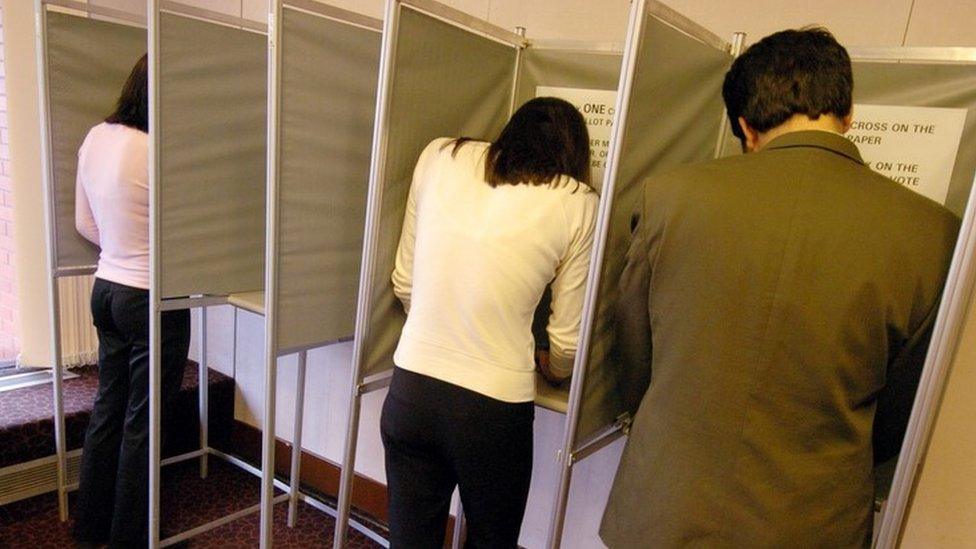
- Published9 April 2019
